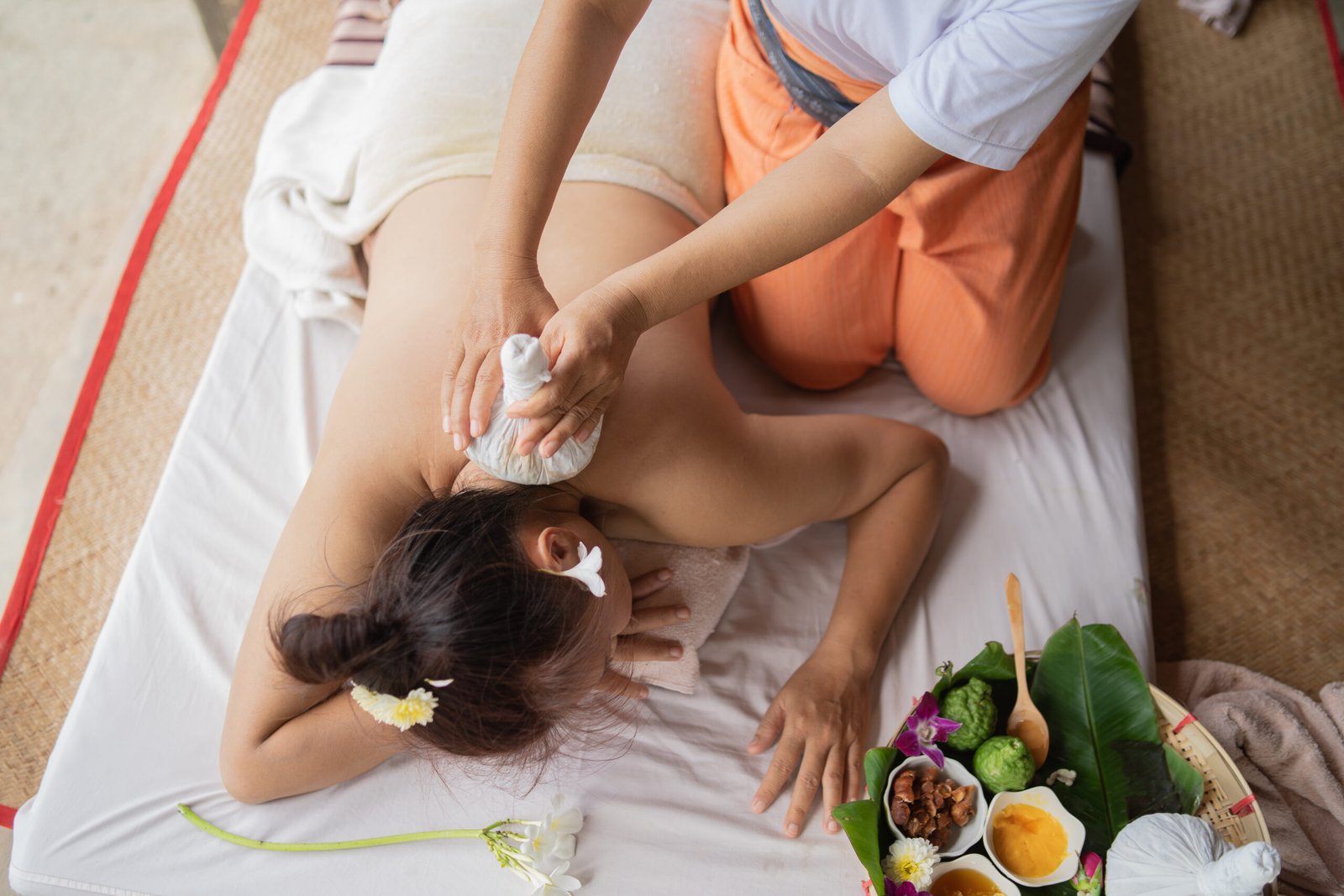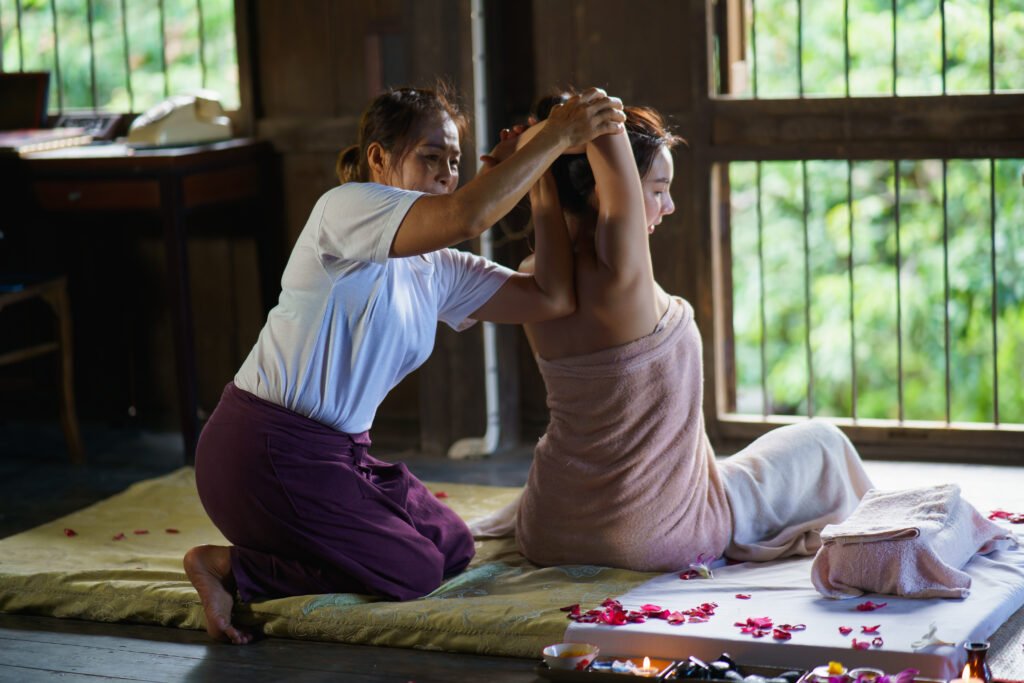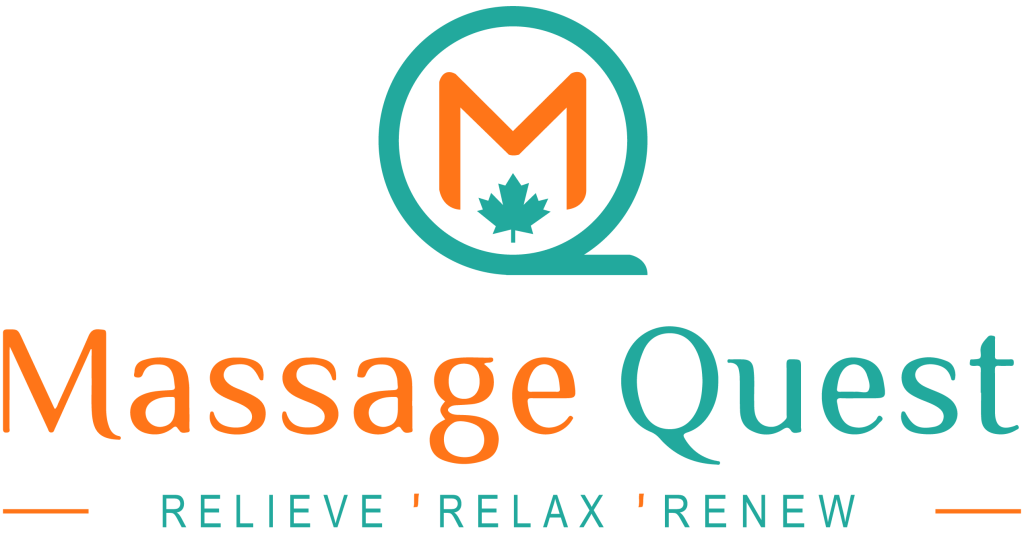Best Thai Massage Therapy in Edmonton
Thai massage is a traditional healing therapy that combines acupressure, gentle stretching, and assisted yoga postures to promote relaxation, flexibility, and overall well-being. During a Thai massage session, the recipient remains fully clothed and lies on a comfortable mat on the floor. The therapist uses their hands, thumbs, elbows, knees, and feet to apply rhythmic pressure along energy lines, known as Sen lines, throughout the body. This pressure helps release blockages and restore the natural flow of energy, or “prana,” within the body, similar to the principles of acupuncture and energy healing modalities.
One of the key aspects of Thai massage is the incorporation of yoga-like stretches, where the therapist gently guides the recipient into various poses and movements. These stretches help improve flexibility, range of motion, and joint mobility, while also releasing tension and promoting relaxation. The combination of acupressure, stretching, and energy work in Thai massage aims to balance the body’s energy, alleviate muscle stiffness and soreness, reduce stress, improve circulation, and enhance overall physical and mental well-being.

Thai massage offers a multitude of benefits for both physical and mental well-being. This traditional healing therapy promotes relaxation, flexibility, and overall vitality through a combination of acupressure, gentle stretching, and assisted yoga postures. The rhythmic pressure applied along energy lines helps release tension, improve energy flow, and restore balance within the body. Thai massage stimulates circulation, promotes detoxification, and supports immune function, contributing to improved health and vitality. Mentally, it reduces stress, anxiety, and fatigue, promoting a sense of relaxation, mental clarity, and emotional balance. Overall, Thai massage is a holistic therapy that rejuvenates the body, calms the mind, and enhances overall well-being.
- Promotes relaxation and stress reduction
- Improves flexibility, joint mobility, and range of motion
- Alleviates muscle tension, stiffness, and soreness
- Enhances circulation and lymphatic drainage
- Supports immune function and detoxification
- Reduces anxiety, depression, and fatigue
- Promotes mental clarity and emotional balance
- Increases energy levels and vitality
- Improves posture and body awareness
- Enhances overall physical and mental well-being


While Thai massage is generally safe for most individuals, there are potential risks and contraindications to consider. Pregnant women should consult their healthcare provider before receiving Thai massage, especially during the first trimester. Individuals with recent injuries, surgeries, or medical conditions affecting the musculoskeletal system should inform their therapist to avoid further complications. Those with cardiovascular conditions should exercise caution, and people with joint instability or bone disorders should communicate with the therapist to ensure gentle techniques are used. Skin conditions or open wounds in the massage area should be avoided to prevent irritation or infections. Additionally, individuals with certain medical conditions or taking medications should seek advice from a healthcare provider before undergoing Thai massage. It’s crucial to communicate openly with the therapist about any health concerns or conditions to ensure a safe and effective massage session tailored to your needs.

